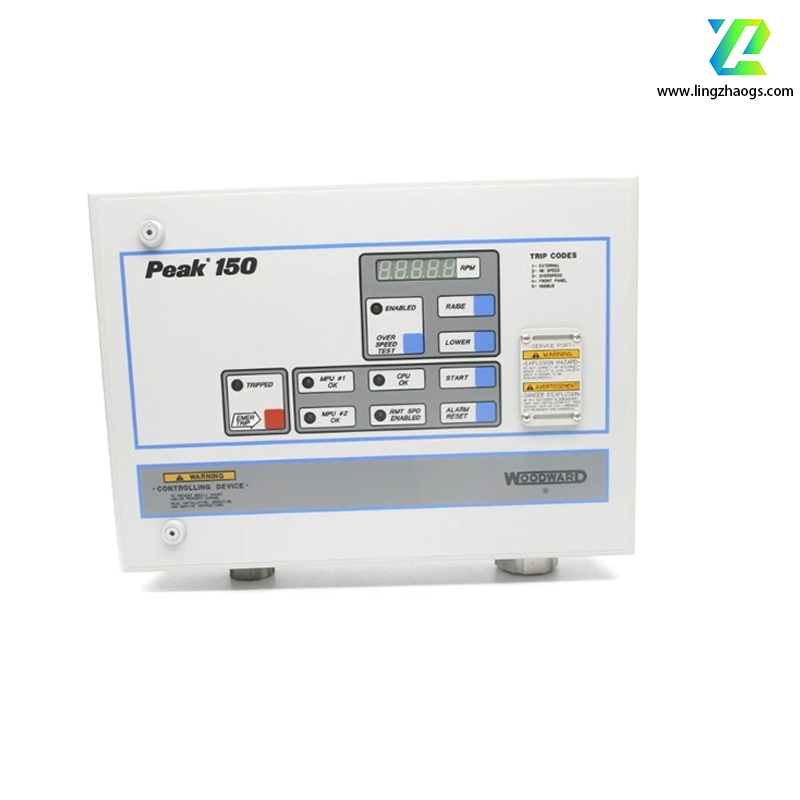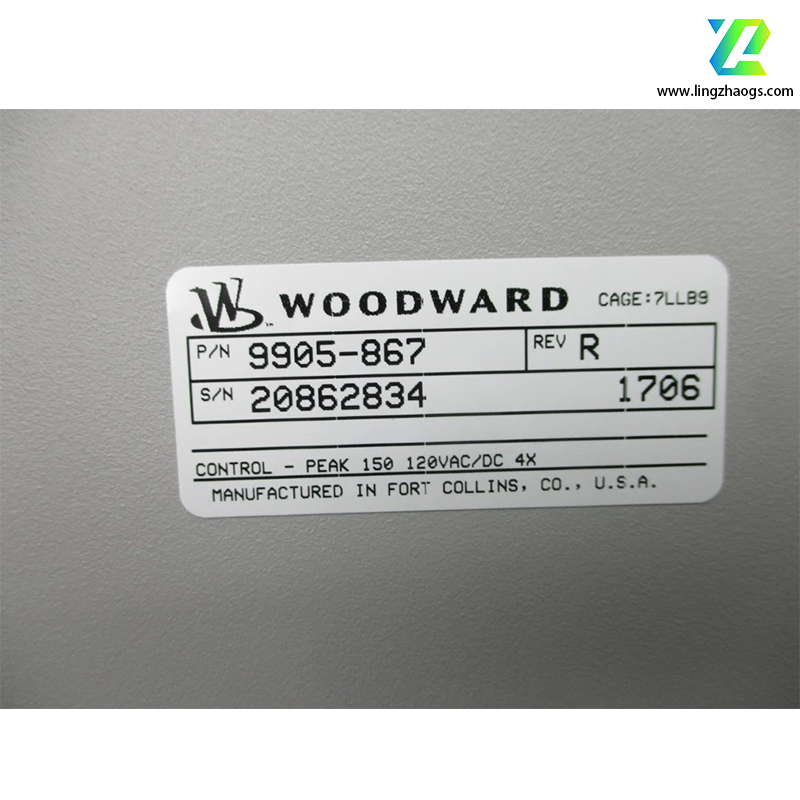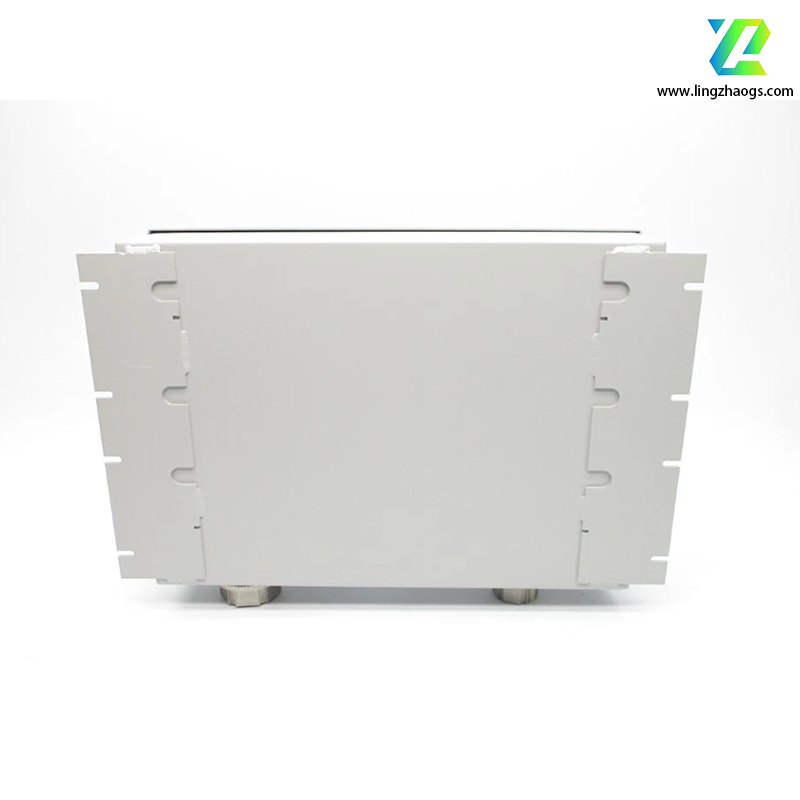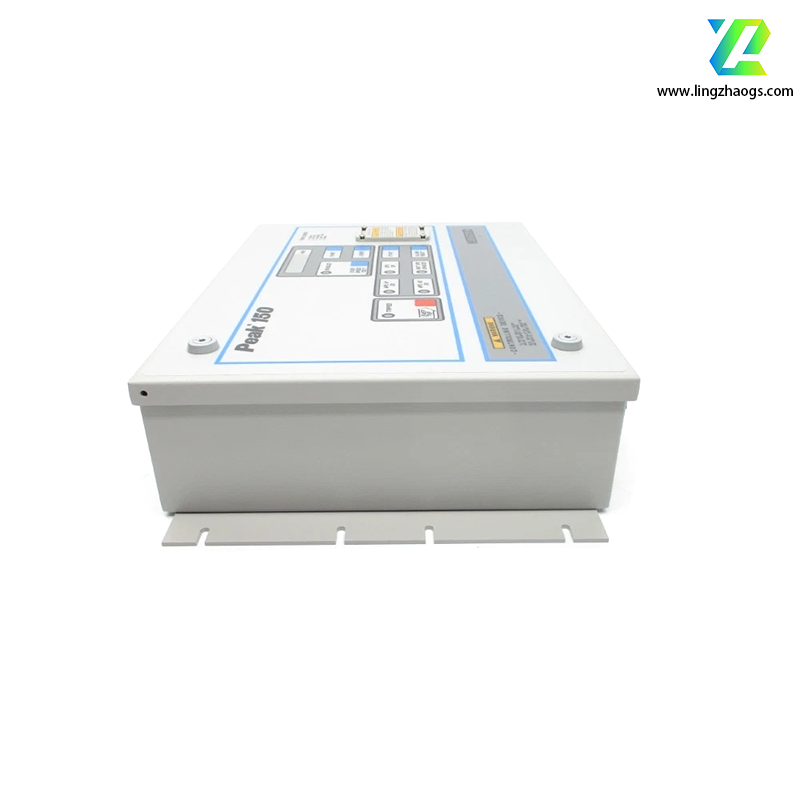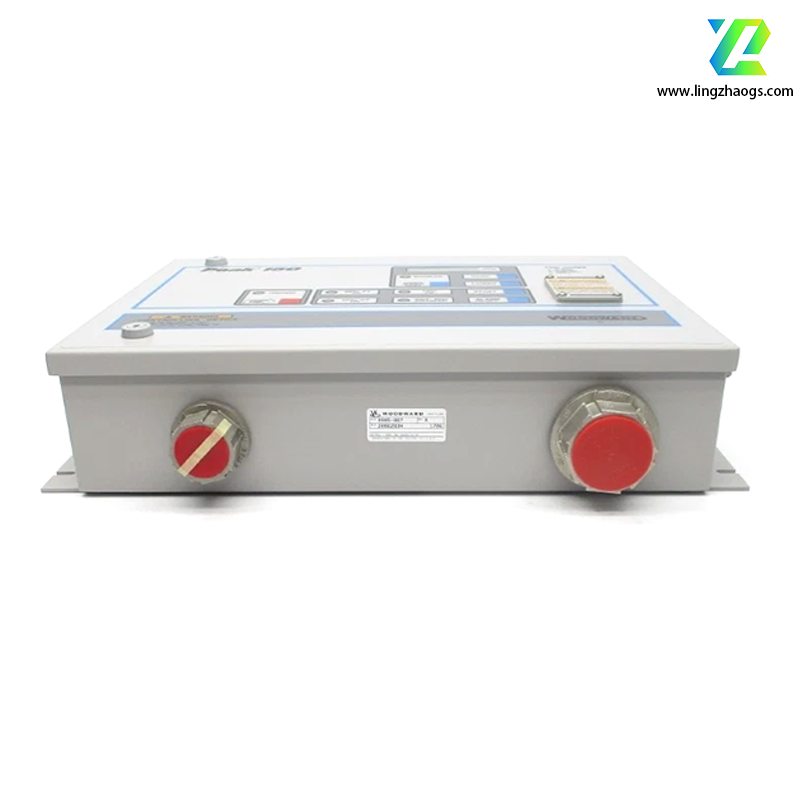Woodward 9905-867 is a high-performance proportional solenoid valve driver module, specifically designed to control and drive proportional solenoid valves in industrial control systems. Below is its detailed information:
- Brand: Woodward
- Model: 9905-867
- Product Type: Proportional solenoid valve driver module
- Series Affiliation: Typically categorized under Woodward’s 9905 series of industrial control modules, widely used in turbine, engine, and process control systems.
- Primary Function: Converts low-power control signals (from controllers) into precise current outputs to drive proportional solenoid valves, ensuring stable and accurate valve actuation.
- Input Voltage: 24V DC (nominal), with a wide operating range of 18V DC - 32V DC to adapt to fluctuations in industrial power supplies.
- Power Consumption: Typical current draw of 0.8A at 24V DC (no load); maximum current draw of 5A when driving high-power solenoid valves.
- Control Input: Accepts 0-10V DC or 4-20mA analog control signals, compatible with most industrial controllers (e.g., PLCs, DCS, or Woodward’s own governors).
- Output Current: Adjustable proportional current output, ranging from 0.1A to 5A (continuous) to match different solenoid valve power requirements.
- Output Accuracy: ±2% of full-scale output (FSO), ensuring precise control of valve opening/closing positions.
- Response Time: <50ms (from input signal change to 90% of target output current), enabling rapid response to system control demands.
- Stability: Built-in current feedback loop to suppress voltage fluctuations and load changes, maintaining output current stability.
- Protection Features:
- Overcurrent protection: Automatically limits output current when exceeding 5.5A to prevent module or solenoid valve damage.
- Overvoltage protection: Shuts down temporarily if input voltage exceeds 35V DC, resuming operation when voltage returns to normal.
- Short-circuit protection: Disables output immediately if the output terminal is short-circuited, with self-recovery after fault removal.
- Dimensions: Approx. 120mm (L) × 80mm (W) × 40mm (H), compact design for easy integration into control cabinets.
- Mounting: DIN rail mounting or panel mounting (via optional brackets), compatible with standard industrial installation methods.
- Operating Temperature: -40°C to +70°C, suitable for harsh industrial environments (e.g., power plants, oil refineries).
- Humidity: 5% - 95% (non-condensing), no impact on performance in high-humidity scenarios.
- Protection Class: IP20 (front panel), requiring installation in enclosed control cabinets to avoid dust or water ingress.
- Wide Compatibility: Works with most 24V DC proportional solenoid valves (e.g., for fuel control, steam regulation) and supports common analog control signals.
- Easy Configuration: No complex programming required; output current range can be adjusted via built-in potentiometers for quick on-site setup.
- Diagnostic Function: Provides a status LED indicator (green for normal operation, red for faults) to help users quickly identify issues (e.g., overcurrent, short circuit).
- Reliable Design: Uses industrial-grade components and undergoes vibration, temperature cycle, and EMC (Electromagnetic Compatibility) testing to meet IEC 61000-6-2 standards.
- Turbine Control: Drives fuel control solenoid valves or steam control valves in gas turbines, steam turbines, and hydro turbines.
- Engine Control: Controls fuel injection solenoid valves in diesel engines or gas engines for power generation or marine propulsion.
- Process Automation: Regulates proportional valves in oil & gas pipelines, chemical processing, and water treatment systems to control flow, pressure, or temperature.
- Availability: New units are typically in stock, with a lead time of 3-5 business days for delivery.
- Recommended Accessories: Optional DIN rail brackets, wiring harnesses, and heat sinks (for high-temperature continuous operation).
- Official Documentation: Refer to Woodward’s 9905 Series Module Technical Manual (Document No. 8501-XXXX) for wiring diagrams, installation guidelines, and troubleshooting steps.
